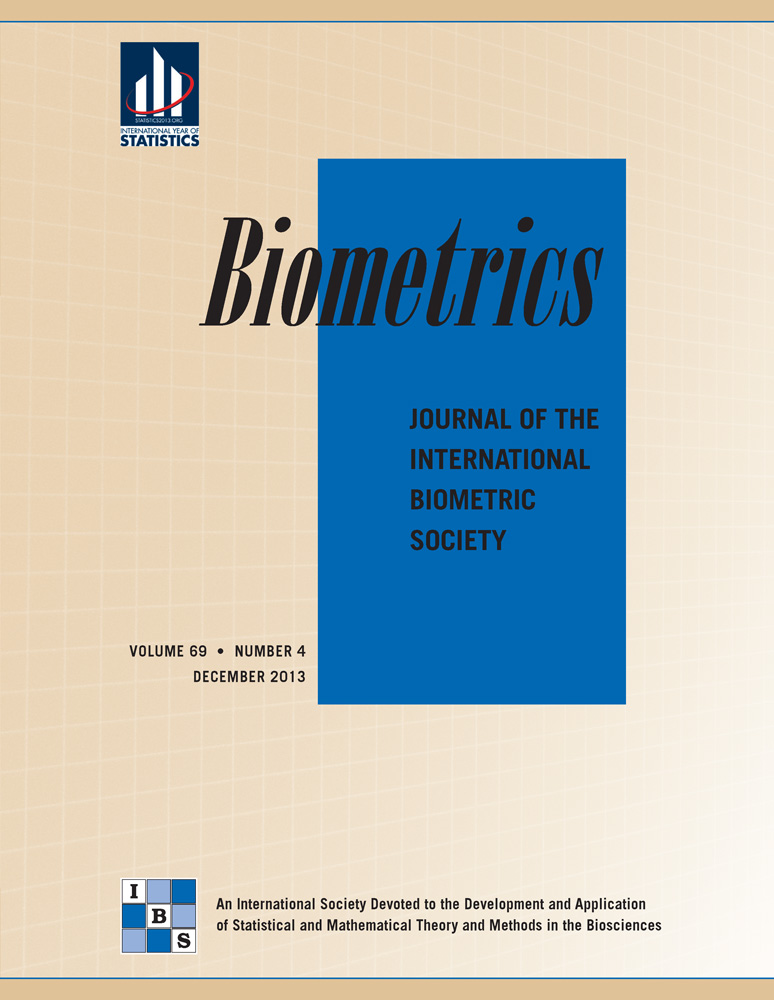Testing for the Multivariate Stochastic Order among Ordered Experimental Groups with Application to Dose–Response Studies
Abstract
Summary
The comparison of two or more ordered experimental groups based on multivariate data is common in a variety of applications such as toxicology, clinical trials and drug development, to name just a few. In this article, we develop a nonparametric methodology for analyzing such data. In particular we propose a global K sample nonparametric test for order among vector valued outcomes. The testing procedure can also be used in a post-hoc fashion to answer questions about the ordering of subgroups and/or single outcomes within any subset of experimental groups. Such a methodology does not currently exist. In contrast with standard methodology such as multivariate analysis of variance (MANOVA), and its nonparametric analogues, we do not assume that the groups differ only by a location parameter or that the components of the response vector have the same marginal distributions between and across groups, that is, we allow for the shape of the distribution to change across groups. We emphasize that our test compares the outcome distributions, not just their mean tendencies, and explicitly incorporates and exploits the order constraints. Consequently it is more powerful than the existing unordered tests. The methodology is illustrated using genotoxicity data where the effect of hydrogen peroxide exposure on damage to DNA is evaluated using a comet assay.




